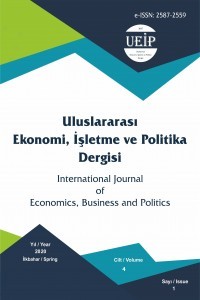SOCIOLOGICAL PERSPECTIVE OF SUICIDES / Sociological Perspective of Suicides
Sociological factors, suicide, social isolation, lack of integration, Emile Durkheim,
SOCIOLOGICAL PERSPECTIVE OF SUICIDES / Sociological Perspective of Suicides
Sociological Factors, Suicide, Social Isolation, Lack Of Integration, Emile Durkheim,
___
- Cavor, N. (2017). Samoubojstvo. Završni rad br. 932/SS/2017. Sveučilište Sjever, Odjel za Biomedicinske znanosti, Varaždin.
- Čejović, B., M. (1996) Pravo na život i pravo na smrt. Pravni život, vol. 45, br. 9, str. 47-52.
- Čimburović, Lj., Šaljić, E. et al. (2013). Viktimologija. Megraf. Beograd.
- Durkheim, E. (2004). Leksione sociologjike. Plejad, Tiranë.
- Durkhem, E. (1997). Samoubistvo. Bigz, Beograd.
- Folnegović-Šmalc, V., Henigsberg, N., Moro, L. (2001). Stressor characteristics and post-traumatic stress disorder symptom dimensions in war victims. VL - 42..Croatian medical journal.
- Halili, R. (2010). Kriminologjia. Universiteti i Prishtinës, fakulteti juridik.
- Halili, R., (2011). Kriminologjia. Prishtinë.
- Hawton, K. (2011). Assessment of Suicide Risk, British Journal of Psychiatry, 150, 145–153.
- Hysi, V. (2010). Kriminologjia. Universiteti i Tiranës, Fakulteti i Drejtësisë. Tiranë.
- Kaplan and Sadocks: Synopsis of psyhiatry, Wiliams i Wilkins, Baltimor, 1994.
- Knežić, B., Savić, M. (2010). Oproštaj od života: Poslednje poruke. Beograd: Institut za kriminološka i sociološka istraživanja.
- Maloku, A. (2019). Fjalor terminologjik i viktimologjisë, Kolegji Iliria, Prishtinë.
- Maloku, A. (2020). Theory of Differential Association. Academic Journal of Interdisciplinary Studies, Vol 9 No 1, January 2020.170-178.
- Pajaziti, A. (2009). Fjalori I Sociologjisë, Logos-A & UEJL, Shkup.
- Pilić, D. (1998.), Samoubojstvo: Oproštajna pisma. Marijan express, Zagreb.
- Ramljak, A. (2007). Kriminalistika mjekësore, Fakulteti i shkencave kriminalistike & Kolegjin AAB, Sarajevë/Prishtinë.
- Ramljak, A., Simović, M. (2006).Viktimologija, Panevropski Universitet Apeiron. Banja Luka.
- Repovac, H. (2005), Krestomaci sociologjike. Universiteti i Sarajeves, Fakulteti i shkencave kriminalistike & Kolegji AAb, Sarajeve/Prishtinë.
- Selaković-Buršić, S., Bujišić, G. (1995). Uticaj društvene krize na suicidalno ponašanje adolescenata, Aktuelnosti iz neurologije, psihijatrije i graničnih područja, 1995, III, 3–4: 47–50.
- Slađana, M. Dragišić Labaš. (2019). Samoubistvo – različiti diskursi, Univerzitet u Beogradu – Filozofski fakultet, Institut za sociološka istraživanja Beograd.
- Špadijer-Džinić, J. (1988). Samoubistva i pokušaj samoubistva. Beograd: Socijalna patologija.
- Shabani, A., Maloku, A. (2019). Tema të përzgjedhura nga patologjia sociale. Kolegji Iliria, Prishtinë.
- Weaver C. John (edit.) (2009). A Sadly Troubled History, The Meanings of Suicide in the Modern Age. Quebeck: McGill-Queens University Press.
- Başlangıç: 2017
- Yayıncı: Ali Rıza SANDALCILAR
Yalçin YALMAN, Kemalettin ÇONKAR
Ferda NAKIPOĞLU ÖZSOY, Aslı ÖZPOLAT
Peter Ngek SHİLLİE, Mary Juliet BIME EGWU
